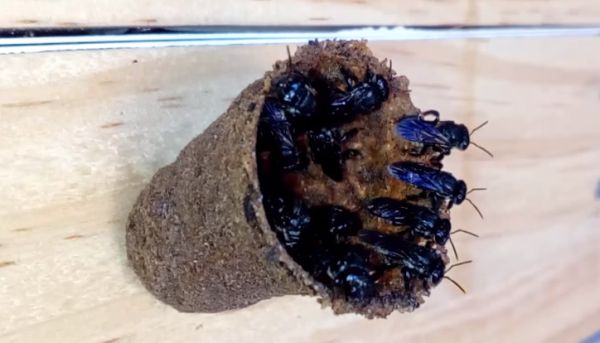I might as well ask this since I got stung or bit by a bee yesterday during America day.
Last year, when taking strolls, it was rare enough for a bee to swarm around me that I could go whole strolls without it happening sometimes.
This year, they swarm around me everywhere. Everywhere. It’s like fighting your way through putty patrollers. They respawn instantly, there’s absolutely no lag. Shoo one away and one comes back five seconds later. Sometimes for three hour strolls encompassing six miles.
What the heck happened? Anyone else notice this?


I wonder if this is related to the fact that I’ve seen quite a bit more native bees in my neighbourhood. (I’m in South America mind you.) And people freaking out because they look like wasps.
Are they friendly/nonvenomous down there?
I believe that most of the native species here don’t even sting, and if you annoy them they’ll flock around you and… that’s it, like a bunch of kids calling you meanie. Or at least the ones that look like wasps, like this:

I’ve seen quite a bit more of those this winter.
How do they defend a hive if not for the ability to sting?
They* technically can bite you, but the bite doesn’t hurt, so it’s likely only effective against other really small critters. They can also release some sort of glue, kind of annoying if they do it while tangling in your hair, but harmless.
I wonder if their visual similarity to wasps isn’t some form of defence on its own, as mimicry. They also seem to build nests in places where they won’t get into trouble with mammals, like inside the hollows of tall trees. And that opening “tube” is closed off at night.
*from some websearch I could find one slightly more dangerous species, called “tataíra” or “abelha de fogo” (lit. fire bee). Even then it’s just spitting formic acid, like ants would; and mostly used not against larger critters, but while pillaging beehives of other species.